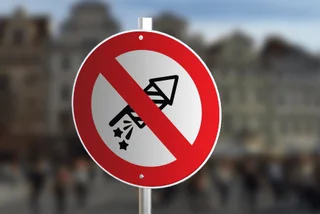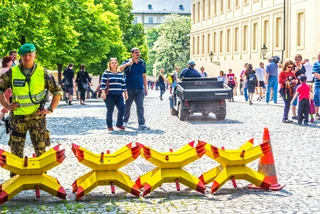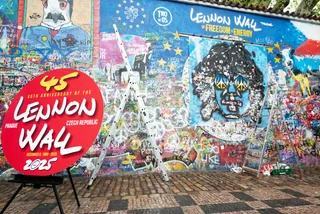International Relations Uyghur congress in Prague criticized by China
Chinese officials have heaped scorn on a meeting of the World Ugyher Congress (WUC) held in Prague on November 12-14. A spokesperson of the regional government in China’s Xinjiang province described the meeting as “ridiculous and an absolute farce,” claiming the congress is a violent terrorist organization seeking to split Xinjiang from China.
PARTNER ARTICLE
At the meeting in Prague, representatives of the Ugyher diaspora spread across 25 countries in Central Asia, the Middle East, Europe and North America criticized a lack of international action to tackle Chinese atrocities against the Ugyher community. The gathering focused on the election of the group’s leadership for the next three years, while featuring panel discussions and first-hand accounts of the Chinese detention camp system for Ugyher Muslims.
Developments Tender announced for modernization of Prague railway line
The Czech railway administration has announced a tender worth almost CZK 4 billion for the modernization of the Prague-Bubny to Výstaviště line. The line will form part of a larger project linking the capital by rail with Prague’s Václav Havel Airport.
The modernization of the Bubny to Výstaviště line should be complete by 2025. The general director of the railway administration described it as one of the most important stages of the overall line to run from Prague to Kladno. It is also a key part of transforming Prague’s Holešovice district; by renovating the old railway station, the two separate parts of Holešovice will be connected. The new Prague Bubny station, with three platforms and four tracks, will be connected to the Vltavská metro stop, and is being designed by the Jakub Cigler Architekti studio. Together with the planned concert hall near Vltavská, it is hoped the station will bring a new lease of life to the Holešovice district.
West vs East Eastern influence faces resistance in the Czech Republic
A new study by Globsec has found that the Czech Republic is one of the most resistant countries to the influence of Russia and China in Central and Eastern Europe. The study, which evaluated eight countries in the region, also noted that the outcome of the Czech election held last month could further increase Czech resistance to eastern powers.
Globsec examined five areas relating the Russian and Chinese influence in the Czech Republic, Hungary, Slovakia, Bulgaria, Montenegro, Northern Macedonia, Romania and Serbia. It then compiled a “vulnerability index”, with the Czech Republic scoring low for eastern influence, on only 29 points. Serbia, on the other hand, scored 55 points. Revelations about Russian involvement in the Vrbětice explosions in 2014 and the consequent Czech-Russian diplomatic rift were partly responsible for the Czech Republic’s negative relations with the East.
Politics Zeman signs laws on fireworks, traffic fines
President Zeman’s partial resumption of duties as Czech President has seen him sign items of legislation bringing in tough fines for people letting off fireworks during sports events, and the possibility for police to punish vehicle owners with unpaid traffic fines.
Those letting off fireworks at sports events will face fines of up to CZK 100,000 or even stadium bans under the new legislation signed by Zeman. The law is expected to come into effect from February 1. The other piece of legislation signed by Zeman will enable police to remove license plates or put wheel clamps on cars if the owners have unpaid traffic fines still outstanding in January. Police will be able to ask drivers to clear their debt on the spot, either in cash or by card. If the driver refuses to pay, police will be able to clamp their vehicle at the nearest suitable location.
Freedom and Democracy Stories of Injustice prize goes to Belarusian activists
The Czech Stories of Injustice prize has been awarded to foreign freedom fighters for the first time. Člověk v tísni, whose One World in Schools education program gives out the award, recognized the actions of three young imprisoned Belarusian activists this year.
The award usually goes to people to who actively resisted the communist regime in Czechoslovakia, nominated by young people under 30. But this year the student jury selected Kseniya Syramalot, Mikita Jemialjanaw and Palina Sharenda-Panasiuk, who were sent to prison following unrest over Belarusian President Alexander Lukashenko’s controversial re-election in 2020. Belarusian opposition figures say the vote was rigged, and neither the EU nor the U.S.A. have recognized the election result.












 Reading time: 3 minutes
Reading time: 3 minutes 
































